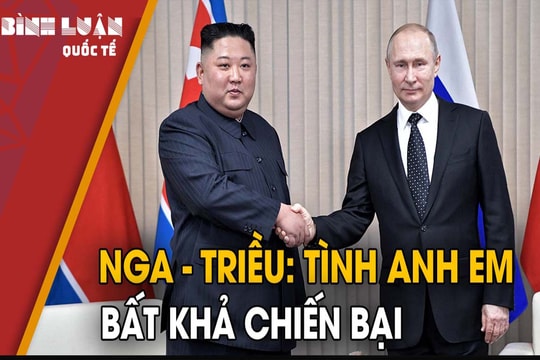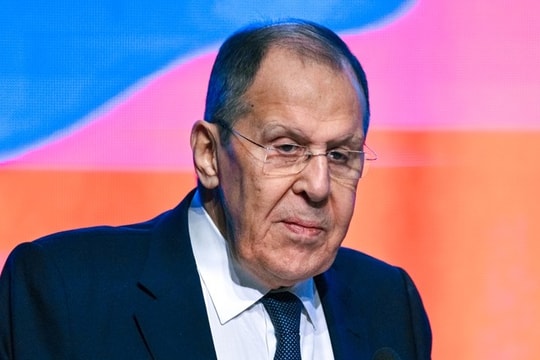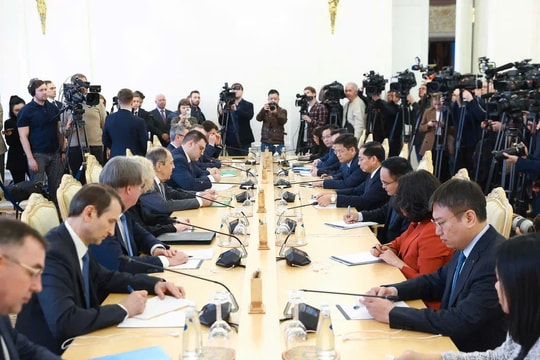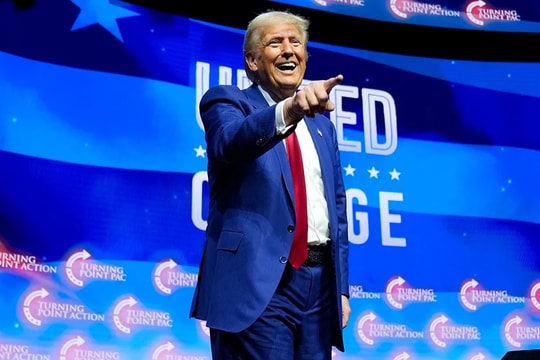Japan - Russia: Rebuilding trust
(Baonghean) - Yesterday (March 20), the Russian Foreign Minister and Defense Minister held a 2+2 meeting with the Japanese Foreign Minister and Defense Minister in Tokyo. In addition to realizing the agreement between Russian President Vladimir Putin and Japanese Prime Minister Shinzo Abe in their meetings last year, this is also an opportunity for the two sides to build trust and strengthen cooperation on regional and international issues.
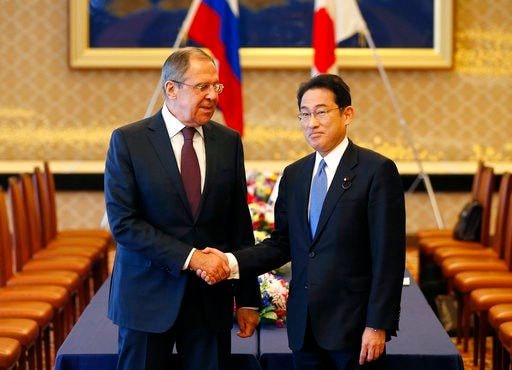 |
| Russian Foreign Minister Sergey Lavrov and Japanese Foreign Minister Fumio Kishida shake hands before the meeting Photo: AP |
Overcoming obstacles
This is the first time the Foreign Ministers and Defense Ministers of Russia and Japan have met since November 2013, when the 2+2 talks were suspended due to Japan's participation in imposing sanctions on Russia after Russia annexed the Crimean Peninsula. During this meeting, the two sides discussed specific plans to realize joint economic cooperation on the disputed islands, which Russia calls the Southern Kurils and Japan calls the Northern Territories.
In preparation for this meeting, the Deputy Foreign Ministers of both sides held a “preliminary” meeting on March 18 in Tokyo, showing that both sides are serious and want to achieve substantial results in promoting this new cooperation activity. Priority areas of cooperation in the disputed islands are fisheries, tourism and health. The two sides also considered the possibility of bringing Japanese people who used to live in the Southern Kuril Islands/Northern Territories to visit this place.
Japan said it would try to unify issues towards the future, based on the principle of not harming each other's positions with the common goal of signing a peace treaty. Meanwhile, Russia expressed its readiness to cooperate if the cooperative activities do not contradict Russian law.
Territorial disputes are the most thorny issue in the Russia-Japan bilateral relationship, especially when both sides firmly maintain their national interests on the disputed territories. Japanese Prime Minister Shinzo Abe himself once said that “As the Prime Minister of Japan, I affirm the correctness of Japan’s position, while President Putin is completely confident in the correctness of Russia’s position. If we continue like this, the negotiations will drag on for decades.”
Meanwhile, Russian President Vladimir Putin has also repeatedly sent out the message that Russia “does not trade territory”. Therefore, both Russian and Japanese officials do not expect the 2+2 talks to create a breakthrough in resolving the sovereignty dispute over the Southern Kuril Islands/Northern Territories. What is important is that economic cooperation activities, when put into practice, can create a foundation and favorable atmosphere for further negotiations, as Russian Foreign Minister Sergei Lavrov said: “I believe that this joint cooperation is an important step in creating a favorable environment to resolve the peace treaty issue”.
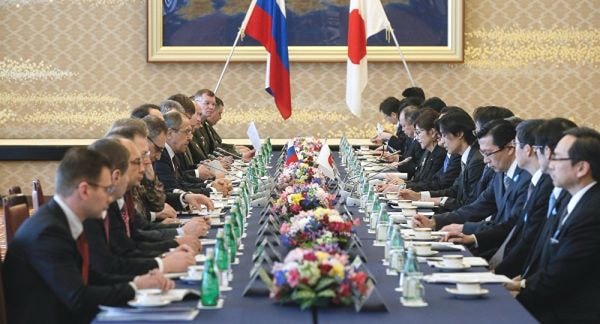 |
| The 2+2 conference between Japan and Russia resumed after more than 3 years. Photo: Sputnik |
From economics to security
According to analysts, once economic cooperation between the two sides in the disputed islands progresses smoothly, cooperation in many other areas will progress rapidly, especially security cooperation in the context of many fluctuations in the regional situation. Up to now, Japan has been a close ally of the US in the region, so Japan tends to share with the US views on issues such as China's increased activities in the East Sea, East China Sea or North Korea's missile and nuclear programs...
Evidence for this is that the two countries' Defense Ministers, in their first 2+2 talks after more than 3 years, focused on discussing the Terminal High Altitude Area Defense (THAAD) system in South Korea. Russia is very concerned that this missile defense system will disrupt the strategic balance in the Asia-Pacific region and threaten Russia's security. However, Japan has repeatedly expressed its intention to participate in this system. Therefore, at this 2+2 meeting, the task of Japanese Defense Minister Tomomi Inada is to strengthen Russia's confidence that if Japan participates in this defense system, it will be to deal with security risks emanating from North Korea and not aimed at any third country.
It can be said that strengthening cooperation on regional security issues between Russia and Japan can bring strategic benefits to both countries. In the context of China's rise in the region, including its more assertive actions in territorial disputes with Japan in the East China Sea, strengthening relations with Russia can partly help Japan reduce its anxiety about the risk of "backstabbing" between Russia and China. Japan's desire to improve relations with Russia is also part of its strategy to balance relations with major countries instead of relying entirely on US policy as before. For Russia, strengthening relations with Japan is in line with its "Eastward" policy - the region considered to be the most developed in the 21st century.
Moreover, President Putin also did not hide his determination to establish around Russia “an ambitious new international order”. This international order will not only require Russia’s deeper and more effective involvement in international hotspots, but also need to strengthen relations with major, influential countries in the region such as Japan and China. And more concrete steps for a warm Russia-Japan relationship will be discussed in the meeting being promoted between Russian President Vladimir Putin and Japanese Prime Minister Shinzo Abe scheduled for the end of April.
Thuy Ngoc
| RELATED NEWS |
|---|

